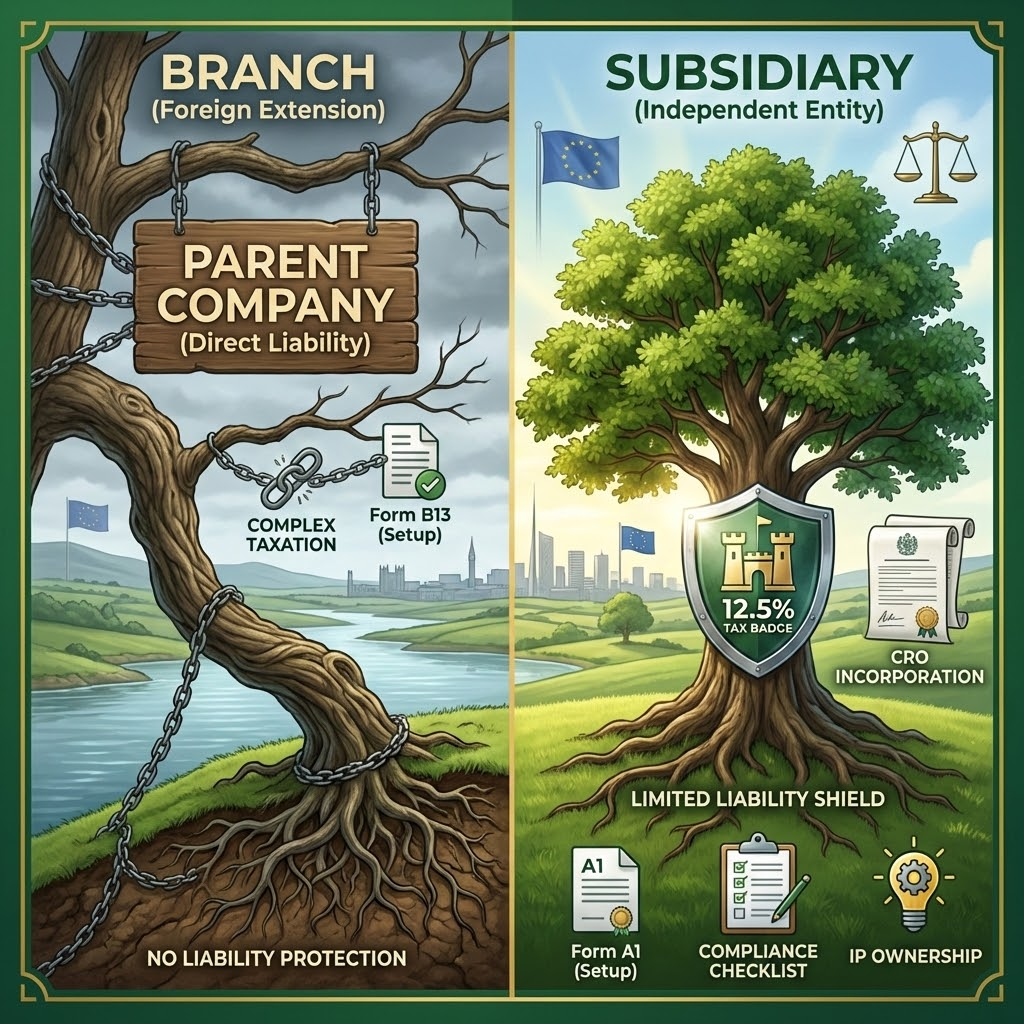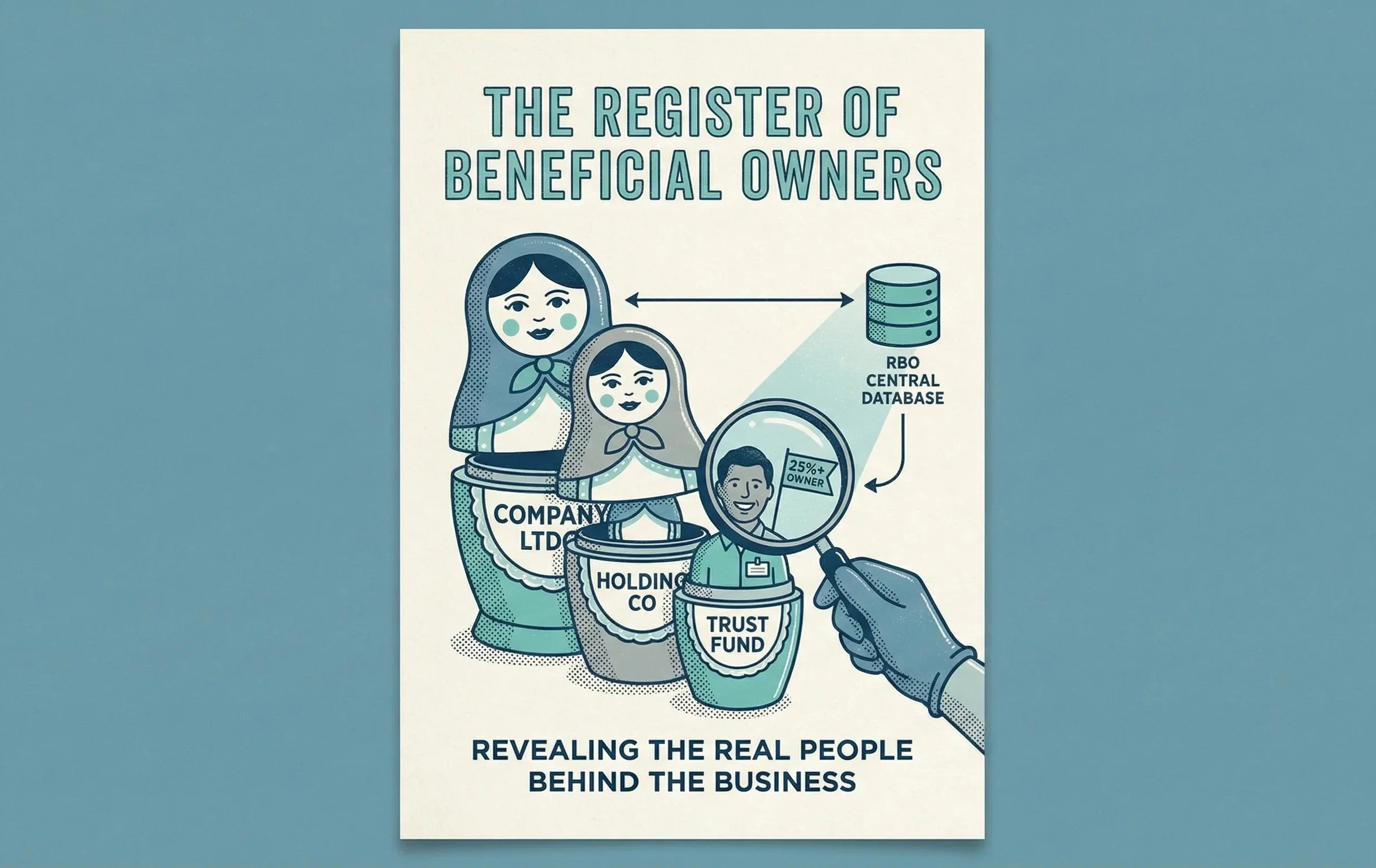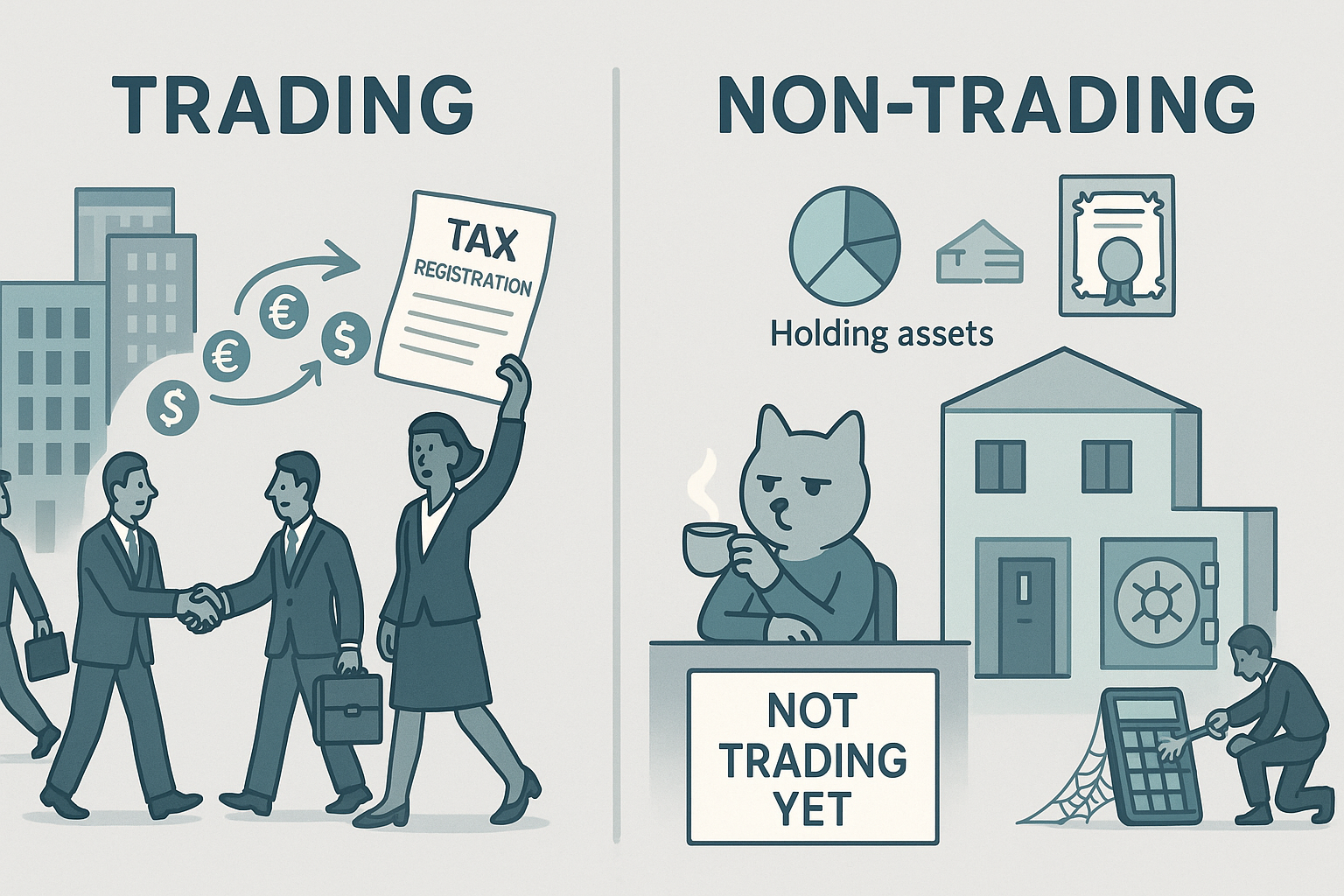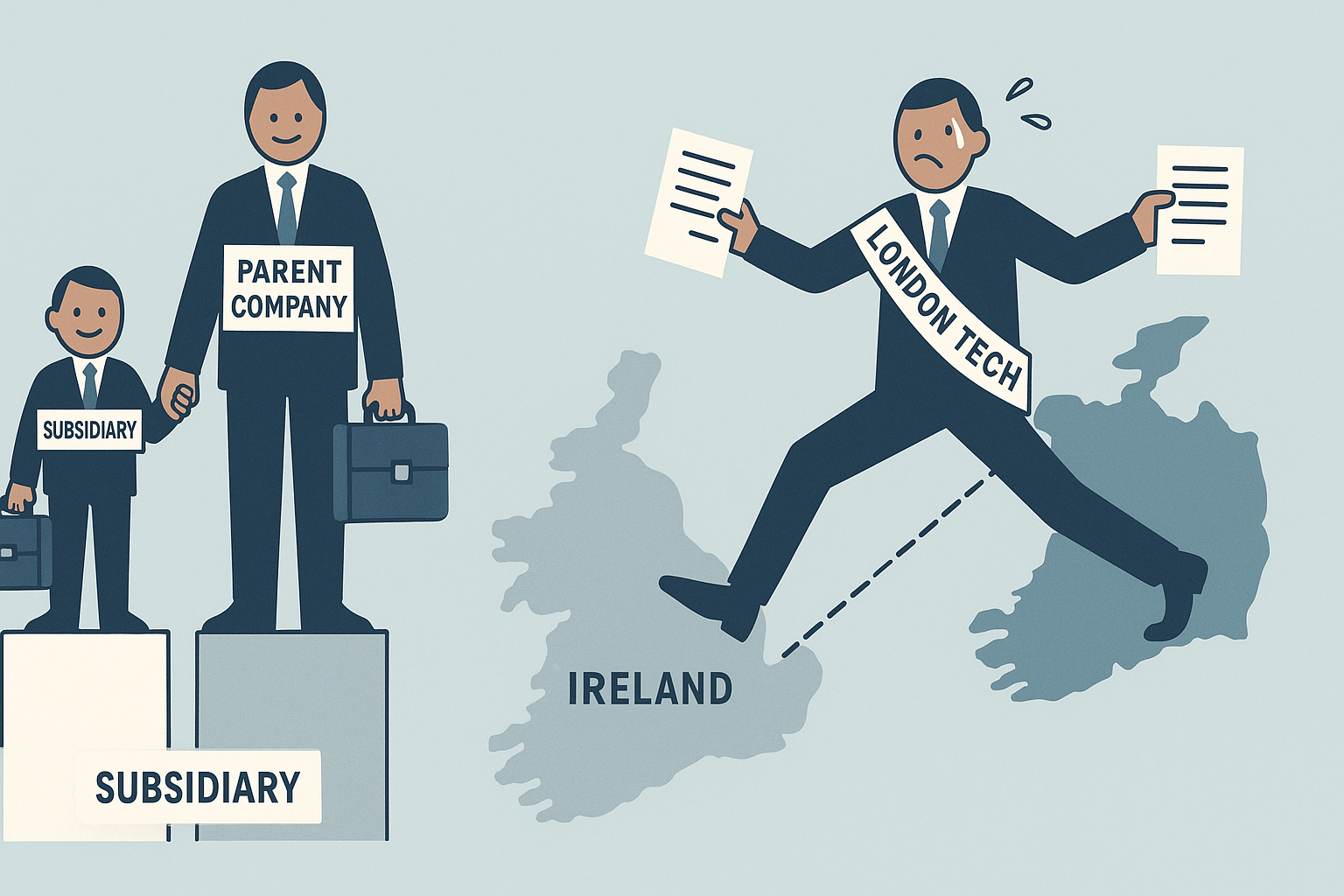Thinking of starting a tech company in Ireland? This guide is written for you and will tell you eveything you need to consider from a legal perspective.
Key Takeaways:
- Ireland offers a competitive 12.5% corporate tax rate alongside generous R&D tax credits, making it an attractive location for tech companies seeking European headquarters
- The incorporation process typically takes 5 business days and requires at least one director in the EEA, a company secretary, and a registered office address in Ireland
- Different share classes can be created to accommodate employee stock options, investment rounds, and founder control mechanisms
- Ireland's tech ecosystem includes extensive support infrastructure, including accelerators, incubators, and Enterprise Ireland backing

Ireland continues to emerge as one of Europe's leading tech hubs, with technology now accounting for over 13% of GDP and employing more than 210,000 people across the country.
This reputation isn't just marketing - it's backed by concrete advantages that make Ireland an ideal location for incorporating your tech company.
1. The Irish Advantage

At the heart of Ireland's appeal is its competitive 12.5% corporate tax rate, one of the lowest in the developed world. This attractive rate has drawn major technology companies to establish their European headquarters here. Even Google, Meta, Apple, and Microsoft have all chosen Ireland as their EU base of operations.
Beyond tax benefits, Ireland offers access to a highly educated, English-speaking workforce and a strong startup support system. Government agencies like Enterprise Ireland, NDRC, and the New Frontiers program provide valuable resources, mentorship, and potential funding opportunities for tech startups.
But you might not necessarily be an international businessperson, you might just be an Irish resident and so Ireland is the automatic choice for your. Either way, if you are planning on incorporating your tech business in Ireland, you should know the following legal basics.
2. Building Your Company's Structure

While a tech company operates differently from traditional businesses, its legal structure follows the same basic framework - it will start off as a private company limited by shares. Think of this as the body of a car. However, what makes a tech company unique is its "engine" - the internal structure that powers growth and flexibility.
3. Share Capital: Creating Room for Growth

One of the most important decisions when incorporating your tech company in Ireland is creating the correct share capital structure right from the start.
"Authorised share capital" is the total number of shares that your company is legally permitted to issue to shareholders. Think of it like this - if you're planning to build an office building, authorised share capital is like setting a maximum height for that building from the start. If you set it too low, you'll need special permission to add more floors later.
Many companies make the mistake of setting a low authorised share capital - often just 100 or 1,000 shares (usually on dodgy advice from accountants that give a "one size fits all companies" opinion). This means that they can never issue more than that number of shares without formally changing their company's constitution.
Here's a practical example:
Let's say you incorporate with an authorised share capital of 100 shares. You issue 70 shares to yourself as the founder, keeping 30 shares available. Later, when an investor wants to take a 25% stake in your company, you run into a problem. You only have 30 shares available to issue, and giving 25 of these to the investor would leave you with just 5 shares for future use. You'd need to undergo a formal process to increase your authorised share capital before you could issue more shares.
This means your company can issue as many shares as needed without requiring constitutional changes.
It's important to understand that authorised share capital is just a maximum limit - you don't need to issue all these shares immediately. Having this flexibility costs nothing extra but can save significant time and money as your company grows.
4. Par Value: The Power of Small Numbers
Another important consideration is the par value of your shares. Setting a low par value - such as €0.01 per share or even lower - creates a lot of flexibility. For instance, if you want to issue shares to early employees but keep the nominal value low, having shares with a par value of €0.01 makes this much more manageable than shares with a par value of €1.00.
Understanding Share Par Value
Par value, also known as nominal value, is the minimum price at which a share can be issued. Think of it as setting a floor price for each share in your company. When shares are issued, the person receiving them must pay at least this minimum amount per share - this is called "paying up" the share capital (although shares can be paid up in "sweat equity" by founders).
Why Lower Par Value Offers More Flexibility

Setting a low par value of €0.01 per share (or even €0.001) rather than €1.00 might seem like a minor detail, but it can impact your company's future flexibility. Here's why:
Consider this example: Imagine your co-founder has been working unpaid for three months, handling business development. You agree their work is worth €20,000 and want to issue them shares accordingly. With a €0.01 par value, you could issue them any number of shares up to 2 million (as their €20,000 worth of services would cover the €20,000 par value). With a €1.00 par value, you'd be limited to issuing only 20,000 shares maximum.
Here's another practical scenario: Consider a situation where you're transferring shares between cofounders early in your company's life, before your company has significant value. With a €1.00 par value, even if you transfer 1,000 shares at their par value, this would trigger a stamp duty payment (it's only 1% but it's the unnecessary hassle of actually paying it). However, with a €0.01 par value, you could transfer up to 99,999 shares without triggering any stamp duty.
The Limitations of Higher Par Values
Setting a higher par value can create unnecessary complications:
- It can require more capital to be paid when issuing shares
- It can make employee share schemes more expensive to implement
- It might force you to issue fewer shares than ideal to keep costs manageable
- It can complicate investment rounds by creating artificial minimum investment amounts
Remember, par value is not the same as market value - your shares can still be sold for more than their par value. Setting a low par value doesn't diminish your company's worth; it simply provides more flexibility in how you structure share issuances and investments. Plus, from an optics perspective, it can be nice to give early employees thousands of shares rather than hundreds for employee shares!
5. Share Classes: Future-Proofing Your Company
Creating multiple share classes at incorporation is a strategic move that can save significant time and money later. Consider establishing:
- Founder shares with full voting rights
- Investor shares with limited or no voting rights
- Employee shares for future staff incentive schemes
This structure allows you to maintain control while accommodating different stakeholder needs. For example, you might want to offer angel investors economic rights without voting powers, or create an employee share pool with specific vesting conditions.
While you can add more share classes later, doing so requires constitutional changes and potentially shareholder approval. Setting up a flexible structure from the start is much more efficient.
6. The Venture Capital Perspective

This flexible foundation sends a strong signal to potential venture capital investors. It shows you've thought about scaling and understand the requirements of professional investors. VCs are familiar with these structures and appreciate not having to restructure companies before investing.
Remember that while these structures can be complex, they're crucial for your company's future.
7. Building for Success

By incorporating your tech company in Ireland with a flexible share structure, you're laying the groundwork for future success.
You'll benefit from Ireland's supportive tech ecosystem while having the structural flexibility to grow and adapt as your company evolves.
The key is thinking ahead - consider not just where your company is today, but where it could be in five or ten years.
With the right foundation, you'll be well-positioned to take advantage of opportunities as they arise in Ireland's thriving tech sector.
How Can Open Forest Help?
Open Forest can help ensure you set up the most appropriate structure for your specific circumstances. We have build a specific package for new tech companies that are ready to scale. We are startup compliance experts - from starting out to helping you raise millions.
Open Forest offers the cheapest and fastest incorporation packages in Ireland including holding companies for €99 including CRO fees and access to the Open Forest platform so you can keep track of all of your legal, tax and accounting obligations - at no additional cost.
Choose from one of our incorporation packages here and we will take care of the rest.

Stuart Connolly is a corporate barrister in Ireland and the UK since 2012.
He spent over a decade at Ireland's top law firms including Arthur Cox & William Fry.





.webp)
.webp)
.webp)





